A lot of people still believe that running online marketing campaigns is all about creativity and hustle. They think you just need to post on social media, run a few ads, and write blog posts to get results. But here’s the truth: without the right Internet Marketing Tools, you’ll always be stuck doing too much manual work, wasting hours, and missing opportunities your competitors are taking advantage of.
Think about it. The digital world is moving fast. Businesses aren’t just competing locally anymore—they’re competing globally. If you’re still relying on old-school methods without tools, you’ll struggle to track SEO performance, optimize ads, or even know what’s working. On the flip side, the right digital marketing tool (or as some call it, internet marketing software or web marketing tool) can completely change the game.
In 2025, automation, AI-driven insights, and easy-to-use platforms are no longer a luxury—they’re a necessity. Whether you’re a small business owner, a freelancer, or someone running multiple campaigns, an online marketing tool helps you save time, improve accuracy, and grow your results faster.
And here’s the kicker: you don’t need to be a tech wizard to use these tools. Most are designed for beginners while offering advanced features for pros. So if you’ve been wondering whether an internet marketing tool for small businesses really makes a difference, the answer is a big yes—it’s the secret weapon behind most successful online brands today.
What is an Internet marketing tool? (And Why You Need One)
Let’s keep it simple. An Internet marketing tool is any software or platform that helps you promote your business online. Instead of juggling ten different tasks manually—like writing emails, tracking website visitors, managing PPC ads, and posting on social media—these tools help you do it all in a smarter and more efficient way.
Different people call it different names:
- Some say digital marketing tool
- Others prefer online marketing tools.
- Many know it as internet marketing software
- And a few call it a web marketing tool
Whatever you call it, the purpose is the same: to make your marketing easier, more effective, and measurable.
Now, why do you actually need one? Here are a few reasons:
- Save Time & Automate Workflows: Instead of manually sending newsletters, an internet marketing tool to automate email campaigns can schedule and personalize messages for you.
- Boost Website Traffic: Want more visitors? A good tool helps with SEO optimization, keyword tracking, and even social media promotion. (Think: an internet marketing tool to increase website traffic.)
- Better Campaign Tracking: With analytics built in, you can finally see which ads, blog posts, or campaigns are bringing in results.
- Affordable Growth for Small Businesses: If you’re running on a budget, don’t worry. There are plenty of free internet marketing tools for beginners that help you start without burning cash.
- Scalability: As your business grows, advanced features kick in. You can move from a free tool to an advanced internet marketing tool with AI features to stay ahead of competitors.
At the end of the day, these tools aren’t just “nice to have.” They’re essential if you want to compete online in 2025. Imagine trying to run a business without a smartphone today—sounds impossible, right? The same goes for digital marketing without tools.
Types of Internet Marketing Tools You Should Know
Many people think that an Internet marketing tool is just one piece of software that magically handles everything for you. But that’s not true. There isn’t a single all-in-one solution that can do SEO, social media, email, PPC, and analytics perfectly on its own. Instead, there are different types of digital marketing tools—each built to handle a specific area of online growth.
Let’s break it down:
SEO & Keyword Research Tools
If you want to rank on Google, you can’t ignore SEO. A solid SEO tool helps you find what people are searching for, analyze competitors, and track rankings.
- Keyword research tools help you discover the exact search terms your audience is typing. (e.g., an internet marketing tool to track SEO performance).
- SEO audit tools scan your website for technical issues holding you back.
- Backlink analysis tools show who’s linking to your competitors—and how you can beat them.
In short, an AI keyword tool or a reliable SEO platform makes sure you’re not guessing when it comes to content creation.
Social Media Marketing Tools
Posting manually on every platform is exhausting. That’s where social media marketing tools come in. They let you schedule posts, track engagement, and even manage paid ads in one place.
- You can run a full internet marketing tool for social media campaigns without logging into five different apps.
- Want to grow fast? Tools like these give you data-driven insights so you know what content performs best.
- They also help with influencer outreach and brand reputation management.
Instead of wasting time, you automate smartly and focus on building real engagement.
Email & Automation Tools
Email is still one of the most powerful marketing channels. But sending messages manually? Not scalable.
That’s where email marketing tools shine. They let you:
- Automate newsletters and drip campaigns.
- Personalize emails to boost open rates.
- Segment your audience for better targeting.
For example, an internet marketing tool to automate email campaigns makes sure your audience gets the right message at the right time. This isn’t just about convenience—it directly improves sales and conversions.
Content Marketing & Blogging Tools
If you’re into blogging, YouTube, or even podcasting, you’ll need the right content marketing platforms. These tools help you research, write, optimize, design visuals, and promote content.
- Content optimization tools improve readability and SEO.
- AI content creation tools help generate ideas and outlines.
- Blog promotion tools push your posts to wider audiences.
Whether you’re a beginner looking for a free internet marketing tool for content creation or a pro using advanced platforms, content tools are the backbone of online growth.
PPC & Paid Ads Tools
Running ads without the right tools is like gambling blind. A strong PPC management tool lets you optimize your ad spend and track results.
- Manage Google Ads tools for search campaigns.
- Handle Facebook Ads tools for social campaigns.
- Use retargeting tools to bring back visitors who didn’t convert.
If you want to scale fast, an internet marketing tool to manage PPC ads ensures you’re spending wisely and tracking ROI properly.
Analytics & Tracking Tools
Here’s the thing: marketing without data is just guessing. That’s why marketing analytics tools are crucial.
- They help you measure traffic, engagement, and conversions.
- With campaign tracking tools, you’ll know exactly which strategy works.
- Conversion rate optimization tools show you how to turn visitors into buyers.
Think of them as your digital compass. Without them, you’re just shooting in the dark.
👉 Bottom line? Different types of internet marketing tools handle different jobs—from SEO to PPC. Using the right mix is what makes your digital strategy powerful.
How to Choose the Best Internet Marketing Tool for Your Business
Here’s a mistake many business owners make: they pick the most popular tool without considering whether it actually fits their needs. The “best” tool isn’t always the priciest or the one with the most features—it’s the one that matches your goals, budget, and business stage.
Here’s a simple framework to help you decide:
Define Your Goals First
Are you looking to boost SEO rankings, automate emails, or manage ads? Your goal will determine the right tool. For example:
- A small business may need the best internet marketing tool for small businesses that’s affordable and easy to use.
- A growing brand might need an advanced internet marketing tool with AI features for deeper insights.
Check for Must-Have Features
Don’t get distracted by shiny extras. Focus on features that really matter:
- Automation capabilities.
- Campaign tracking.
- Integration with other apps.
- Scalability.
This ensures you’re not paying for things you’ll never use.
Free vs Paid Tools
Many beginners ask: should I start with a free internet marketing tool for beginners or invest right away? Here’s the deal:
- Free tools are perfect to test the waters.
- Paid tools usually offer more advanced tracking, automation, and support.
As your business grows, switching to a digital marketing tool with premium features makes sense.
Ease of Use Matters
A tool can have the best features in the world, but if it takes you weeks to figure out, it’s useless. Look for a web marketing tool that’s simple, intuitive, and comes with tutorials or support.
Scalability for the Future
Right now, you might only need basic SEO help. But what about six months from now when you’re running ads, managing social campaigns, and tracking sales funnels? That’s where scalability comes in. Choosing a flexible online marketing tool means you won’t have to switch later.
👉The takeaway: Don’t pick a tool just because it’s trending. Pick one because it actually fits your goals. Whether it’s a free online marketing tool for beginners or an AI-powered internet marketing software, the right choice will save you money, time, and frustration down the road.
Top 10 Internet Marketing Tools in 2025 (Handpicked for You)
A common misconception is that there’s one “magic” internet marketing tool that works for everyone. But that’s not true. The tool that’s perfect for a freelancer may not work for a big eCommerce brand. That’s why I’ve handpicked the top 10 online marketing tools in 2025 that suit different business types and needs.
Here’s the list 👇
SEMrush
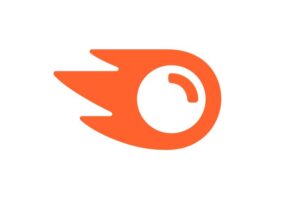
One of the most powerful SEO tools in the market. It helps you with keyword research, SEO audits, backlink analysis, and competitor tracking. Perfect if you’re looking for an internet marketing tool to track SEO performance.
Ahrefs

Great for deep SEO and content research. It shows you what keywords competitors are ranking for, what content gets the most traffic, and how to build stronger backlinks.
HubSpot

More than just a tool — it’s a full marketing automation platform. From email marketing to CRM to campaign tracking, HubSpot is an advanced internet marketing tool with AI features for scaling businesses.
Mailchimp
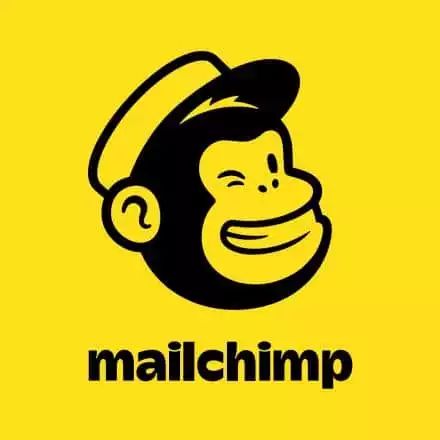
The go-to email marketing tool for small businesses. You can automate email campaigns, segment audiences, and track engagement. It’s also beginner-friendly and offers a free internet marketing tool for beginners plan.
Canva

Content is not just about words — visuals matter too. Canva is a content marketing tool that helps you create designs, ads, social media posts, and even videos without needing a designer.
Hootsuite
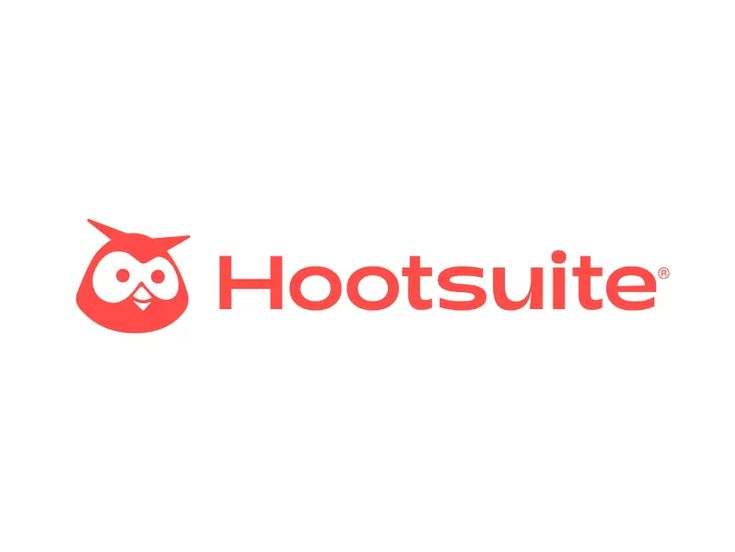
Managing social media manually is a nightmare. Hootsuite is one of the best internet marketing tools for social media campaigns. It lets you schedule, monitor, and analyze posts across multiple platforms.
Google Analytics (GA4)

Every business needs analytics marketing tools. Google Analytics is free and gives you detailed insights about your traffic, conversions, and customer behavior. Think of it as your campaign tracking tool.
Google Ads Manager
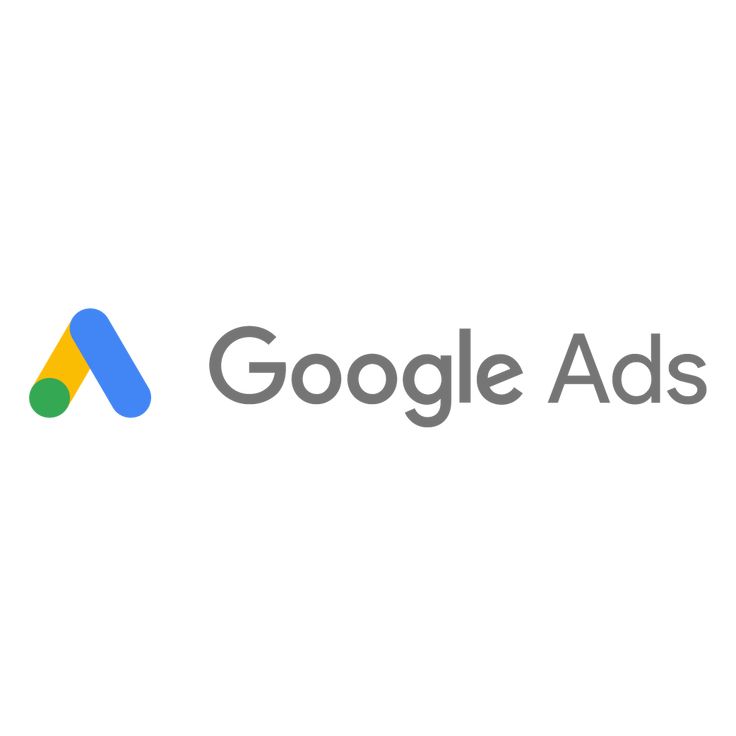
If you run PPC campaigns, this is essential. Google Ads helps manage keywords, run search/display ads, and measure ROI. It’s the ultimate internet marketing tool to manage PPC ads.
SurferSEO

A content optimization tool that helps bloggers and content marketers write SEO-friendly articles. It compares your content with top-ranking pages and suggests improvements.
BuzzSumo
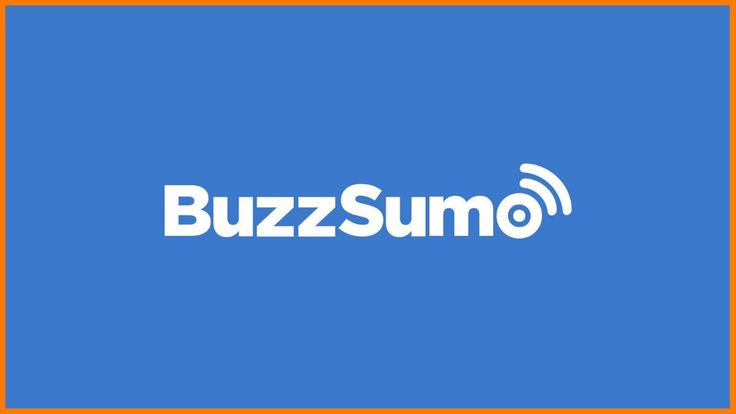
Want to know what type of content performs best in your niche? BuzzSumo is a great content marketing platform for research, influencer outreach, and tracking trends.
👉 Whether you’re looking for a free online marketing tool for beginners or a professional-level internet marketing software, this list covers everything from SEO to social media, PPC, and content.
Benefits of Using an Internet Marketing Tool
Some business owners still think these tools are just “add-ons” — nice to have, but not necessary. The truth is, in 2025, internet marketing tools are essential for survival. If you’re not using them, your competitors definitely are.
Here are the biggest benefits:
Saves You Time and Effort
Instead of juggling 10 platforms, one digital marketing tool can automate tasks like email scheduling, SEO tracking, and campaign monitoring. More automation = more time for strategy.
Boosts Traffic and Visibility
Tools like SEMrush or Ahrefs help you find keywords your audience actually searches for, while social media tools expand your reach. If you’ve been looking for an internet marketing tool to increase website traffic, this is where the magic happens.
Improves ROI (Return on Investment)
With conversion rate optimization tools and analytics dashboards, you’ll know exactly what’s working. No more wasting money on ads or campaigns that don’t perform.
Affordable Growth for Small Businesses
Thanks to free internet marketing tools for beginners, small business owners can start without spending a fortune. And as they grow, they can switch to advanced AI-powered tools.
Data-Driven Decisions
The best part? You don’t guess. You make decisions based on actual numbers from campaign tracking tools and marketing analytics dashboards. That means smarter moves and faster growth.
Common Mistakes to Avoid with Internet Marketing Tools
One of the biggest misconceptions people have is that buying more tools automatically leads to more results. Many small businesses believe if they stack multiple SEO tools, social media tools, or email marketing platforms, they’ll dominate the digital space. But in reality, it often creates more confusion than results. Let’s go over the most common mistakes you should avoid when working with internet marketing tools:
❌ Relying Only on Tools Without Strategy
Internet marketing tools are powerful, but they don’t replace a solid strategy. For example, using an SEO tool to find keywords is useful, but if you don’t create valuable content around those keywords, you won’t rank. Tools guide you; they don’t do the thinking for you.
❌ Not Connecting Tools Together
A huge mistake is using tools in isolation. Imagine running Facebook Ads but not connecting them to your Google Analytics or not syncing your email marketing platform with your CRM. This creates data gaps and makes it hard to measure ROI. Always integrate your tools so they work as one ecosystem.
❌ Ignoring Data Analysis
A lot of marketers collect endless reports from SEO tools, PPC tools, and social analytics dashboards but never actually analyze them. Looking at vanity metrics like impressions or likes isn’t enough—you need to focus on conversions, ROI, and customer lifetime value.
❌ Over-Automating Everything
Automation is great (like email sequences or social scheduling), but if you automate too much, your brand starts to feel robotic. Internet marketing should feel personal. For instance, personalized emails always perform better than generic automated blasts.
❌ Using Too Many Tools at Once
This is the classic “shiny object syndrome.” People see new tools every week—AI SEO tools, AI copywriting software, chatbots—and they want them all. Instead, stick to a few that really match your marketing goals. Quality over quantity.
👉 Pro Tip: Always audit your tools every 3–6 months. Remove what you’re not using and double down on the ones that truly bring results.
The Future of Internet Marketing Tools
Many people think internet marketing tools have already reached their peak. But the truth? We’re just getting started. The future of digital marketing tools looks more exciting than ever, especially with the rise of AI, automation, and predictive analytics. Here’s where things are headed:
🚀 AI-Powered Marketing Tools
Artificial intelligence is changing the game. From AI SEO tools that automatically optimize your content, to AI ad platforms that predict which audience will convert best, marketers will spend less time guessing and more time executing smart campaigns.
📊 Predictive Analytics
Soon, tools won’t just report what happened—they’ll tell you what will happen next. Imagine knowing which keywords will trend next month or which email campaign will likely drive the most sales. That’s the power of predictive analytics.
🤖 Smarter Automation with Personalization
Automation is evolving. Instead of sending the same email sequence to everyone, tools will create hyper-personalized campaigns based on customer behavior, browsing history, and even sentiment analysis. That means more engagement and higher conversions.
🌍 Omnichannel Integration
Right now, most businesses still treat email, social, SEO, and paid ads separately. The future is all about unified dashboards that manage everything in one place. You’ll track customer journeys across every touchpoint without switching between 5 different apps.
🔒 Privacy-Friendly Marketing Tools
With Google phasing out third-party cookies and stricter privacy laws, tools will focus more on first-party data (like your email list) and ethical tracking methods. Expect tools that respect user privacy but still deliver valuable insights for marketers.
🎯 The Rise of Voice & Visual Search Optimization
As voice assistants and visual search become more common, internet marketing tools will adapt to help businesses optimize for these formats. Future SEO won’t just be about text—it’ll be about images, videos, and voice commands.
👉 Bottom line: The tools of tomorrow will make marketing smarter, faster, and more personalized. Businesses that adapt early will have a massive advantage.
Choosing the Right Internet Marketing Tools for Your Business
One of the biggest myths about internet marketing tools is that there’s a “one-size-fits-all” solution. Many small businesses rush to buy the same tools that big brands use, thinking they’ll get the same results. But here’s the truth: the best marketing tool is the one that matches your business goals, budget, and audience—not necessarily the most popular one.
🎯 Start with Your Goals
Before even looking at tools, ask yourself: What do I want to achieve?
-
If your goal is brand awareness, focus on social media management tools like Buffer or Hootsuite.
-
If you want higher Google rankings, go for SEO tools like Ahrefs, SEMrush, or Moz.
-
If your focus is sales conversions, email marketing and funnel builders like ActiveCampaign or HubSpot may be better.
💰 Consider Your Budget
Many entrepreneurs make the mistake of subscribing to expensive platforms they barely use. Instead, test free or freemium versions first. For example, Mailchimp offers a free plan for beginners, while Ubersuggest gives affordable SEO insights.
🔗 Look for Integration
Your tools should work together. For example, your CRM should connect with your email marketing platform, and your social scheduling tool should integrate with analytics. This prevents data silos and saves you time.
📊 Ease of Use Matters
Some tools are feature-rich but complicated. If your team finds it too hard to use, you’ll waste money. Always choose tools that match your technical comfort level.
👩💻 Trial Before You Buy
Most tools offer free trials—take advantage of them. Test whether the tool gives you actionable insights or just fancy reports.
👉 Pro Tip: Instead of buying 10 tools at once, start with 2–3 essential ones and expand as your marketing grows.
Final Thoughts on Internet Marketing Tools
A lot of marketers still believe that tools are the “magic solution” to digital growth. But the reality is, internet marketing tools are only as powerful as the strategy and creativity behind them.
Here’s the takeaway:
-
Tools save time, provide insights, and automate processes.
-
But they don’t replace human creativity—you still need to create engaging content, build genuine relationships, and make data-driven decisions.
-
Choosing the right tools means balancing features, budget, and business needs—not chasing every new trend.
Looking ahead, the future of internet marketing tools is all about AI-driven personalization, predictive analytics, and ethical data use. Businesses that learn to combine human creativity with smart automation will stay ahead of the competition.
So, instead of asking “Which is the best marketing tool out there?”, ask:
👉 “Which is the best tool for MY business right now?”
If you focus on clarity, integration, and strategy, the tools you pick will become powerful allies in scaling your digital presence.
“AI is transforming how we use internet marketing tools. If you want to dive deeper into this, check out our full guide on the [Future of AI in Digital Marketing]




